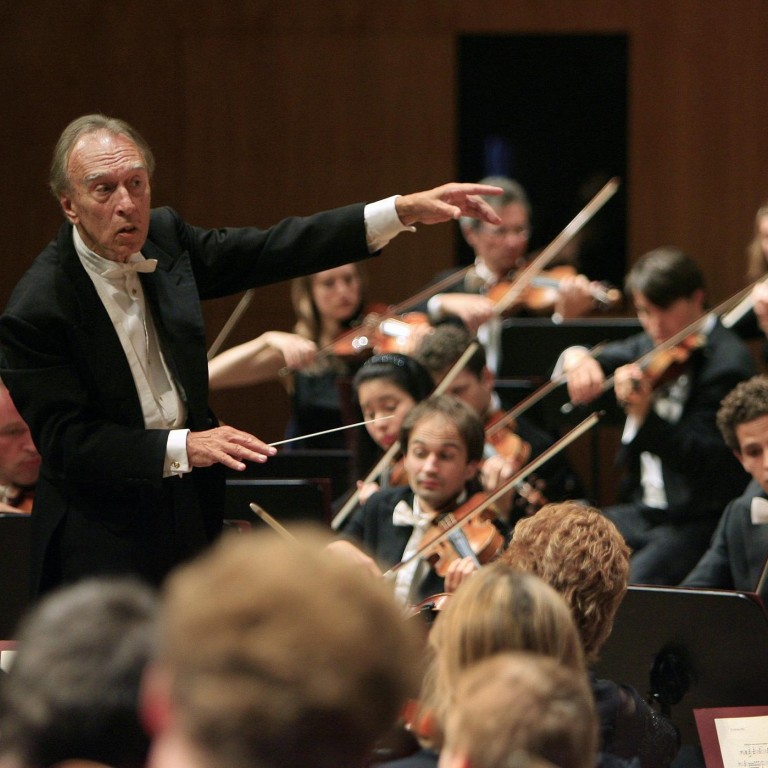
Italian conductor Claudio Abbado dies aged 80
Leading conductor Claudio Abbado, who was director at La Scala for 20 years, dies aged 80
Claudio Abbado, who decided to become a conductor after hearing a concert at La Scala at the age of eight and went on to lead the Milan opera company and top orchestras for more than half a century, has died aged 80.
Abbado, who was known as a musician's musician, shunned the publicity and pomp often associated with top conductors and supported young musicians.
He died in the northern city of Bologna in his native Italy after a long illness.
He was a truly charismatic conductor. His concerts were breathtaking
Lennox Mackenzie, a violinist and orchestra chairman of the London Symphony Orchestra (LSO), where Abbado was principal conductor from 1979-1988, said: "He was a truly charismatic conductor. His concerts were breathtaking occasions for the audience and players alike."
In addition to serving as music director of La Scala for two decades, Abbado led the Vienna State Opera, the Berlin Philharmonic and made guest appearances throughout the world.
Italian Prime Minister Enrico Letta said: "The world of music and culture has lost an absolute champion."
Abbado's surprise appointment as chief conductor of the Berlin Philharmonic in 1989 led critics to call him "the world's most powerful conductor".
He also had a 46-year span recording some of the world's most cherished performances for the Deutsche Grammophon label.
Born in Milan on June 26, 1933, to a violinist father and a pianist mother, Abbado announced his intention of becoming a conductor when he was aged eight after the La Scala concert. "I remember when I was back home I decided to become a conductor," he said in 1980.
He earned pocket money as a church organist before joining the Vienna Academy of Music in 1956. In Vienna, Abbado learned an economical style of conducting and Hans Swarovsky taught him to conduct with one hand tied behind his back. Abbado's rhythmic energy, drive and love of big, colourful sound placed him squarely in the tradition of late fellow-Italian conductor Arturo Toscanini, one of the most famous wartime exiles from dictator Benito Mussolini's Italy.
During his time at La Scala, Abbado rejigged the usually staid repertory and encouraged young people and less wealthy music lovers to join the well-heeled crowd in the auditorium.
Conservative audience members left their seats in protest at Abbado's addition of avant-garde composers such as the Italians Luigi Dallapiccola and Luigi Nono to the repertory.
In a 2010 interview with magazine, Abbado explained his championing of contemporary musicians, saying: "If you think back to the time of Beethoven, he was a contemporary composer. And many people didn't understand him.
"So any time you have a great composer, you should try to understand, to listen."
Abbado also became founding music director of the European Union Youth Orchestra.
Abbado was diagnosed with cancer in 2000, but recovered and three years later went on to form the Lucerne orchestra, selecting most of the members himself.
La Scala was forced to cancel concerts when Abbado was hit by another illness in May 2010.
Abbado also worked in the US, often serving as guest conductor of the New York Philharmonic and the Cleveland and Philadelphia orchestras.

